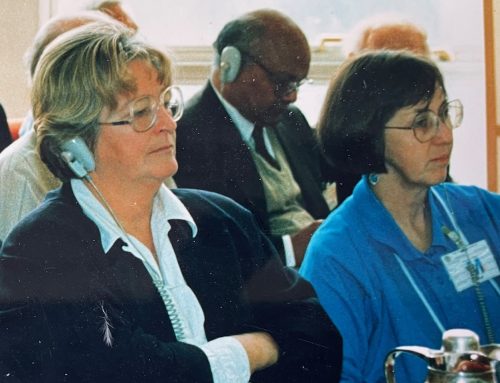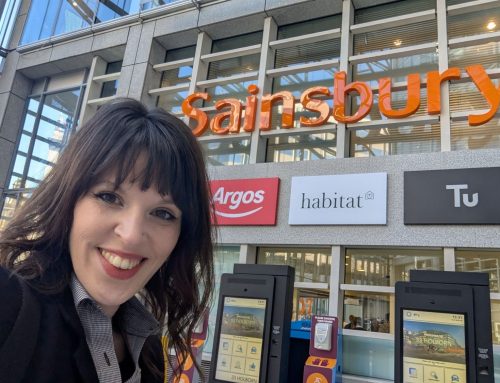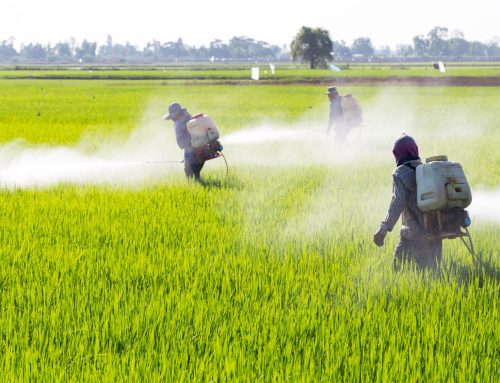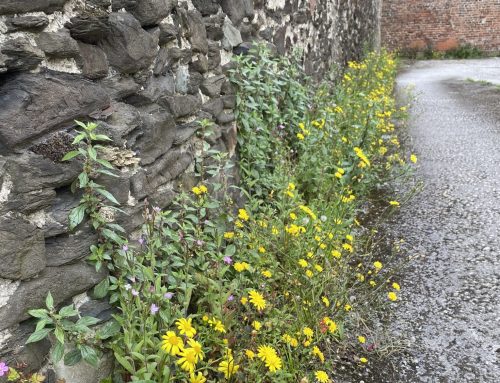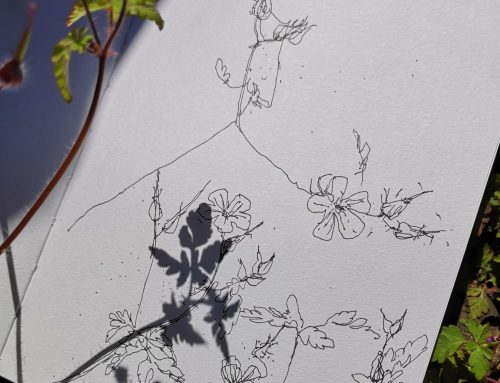by Sheila Willis, Head of International Programmes, PAN UK
According to an April 2020 forecast by the World Trade Organisation (WTO), ‘global trade volumes are expected to fall by between 13% and 32% in 2020 as the COVID-19 pandemic disrupts normal economic activity and life around the world.’ The economic fallout from the pandemic is likely to hit vulnerable communities in poor countries the hardest. This will likely have significant and unquantifiable effects, including on food supplies, social issues and security. The Government of Ethiopia has said that it anticipates that hunger and poverty could kill more of its people than the virus itself.
Impacts on markets
Ethiopia’s rural population (81%) largely relies on agriculture for their livelihoods. Prior to the crisis, studies in Ethiopia showed that farming both food and cash crops was important for food security. With support from TRAID, PAN UK works with PAN Ethiopia to train smallholder farmers to adopt sustainable methods of cotton production in order to boost household income. In 2018, PAN-trained cotton producers gained the country’s first organic certification, securing an average net income 64% higher than untrained farmers and this was set to increase in 2020.
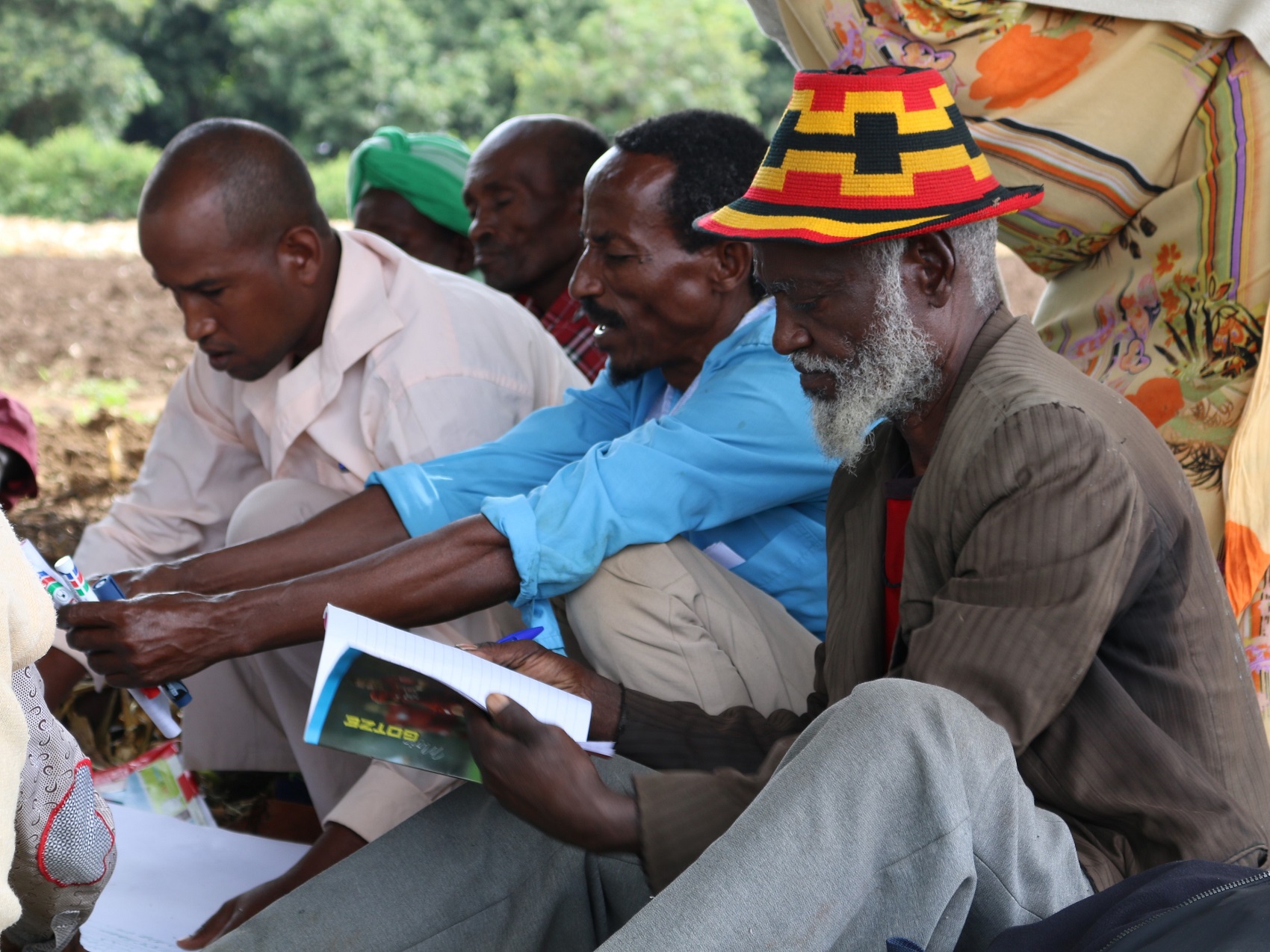
Cotton farmers in Ethiopia learning sustainable farming methods at one of PAN’s Farmer Field School. Credit: PAN UK
However, the COVID crisis has brought the international textile supply chain to a virtual standstill. In Ethiopia, for example, the organic cotton farmers managed to secure a lucrative contract for all the cotton they could produce this year. Sadly, when the pandemic hit, the buyer only purchased 16% of the cotton produced. With PAN’s help, they managed to secure other buyers but on reduced terms.
Mitigating disruption
Throughout the crisis PAN’s field teams in Ethiopia have continued to work hard to support participating farmers. For the moment, restrictions have been lifted, but they are cautious. They are equipped with masks and they provide hand sanitisers and/or washing facilities at training events. All these events are conducted outdoors and numbers are limited to accommodate social distancing.
Meet Mr Elias Ero
Mr Elias Ero is a smallholder farmer living in Omo Lante Village, Southern Ethiopia. His wife and four children depend on farming their half hectare of land for their food and livelihood. All the children attend school. Cotton provides their only cash income and they also grow maize, teff and beans.
“I have attended the [PAN] training for the past six months and it helped me have better understanding of cotton production.” Elias says ‘generally the training helped us give much attention to our cotton crop, observe it regularly. The crop itself can tell us what it needs. My cotton as you see it looks so good and I am expecting a good yield provided that the weather is okay.“
This interview was conducted in October 2019. It is terrible to think of the impact of the COVID crisis undermining cotton markets for families like Elias’, after so much work and anticipation of a good crop. PAN is working hard to equip farmers like Elias with skills that will help them through the current crisis and beyond.
Credit: PAN Ethiopia
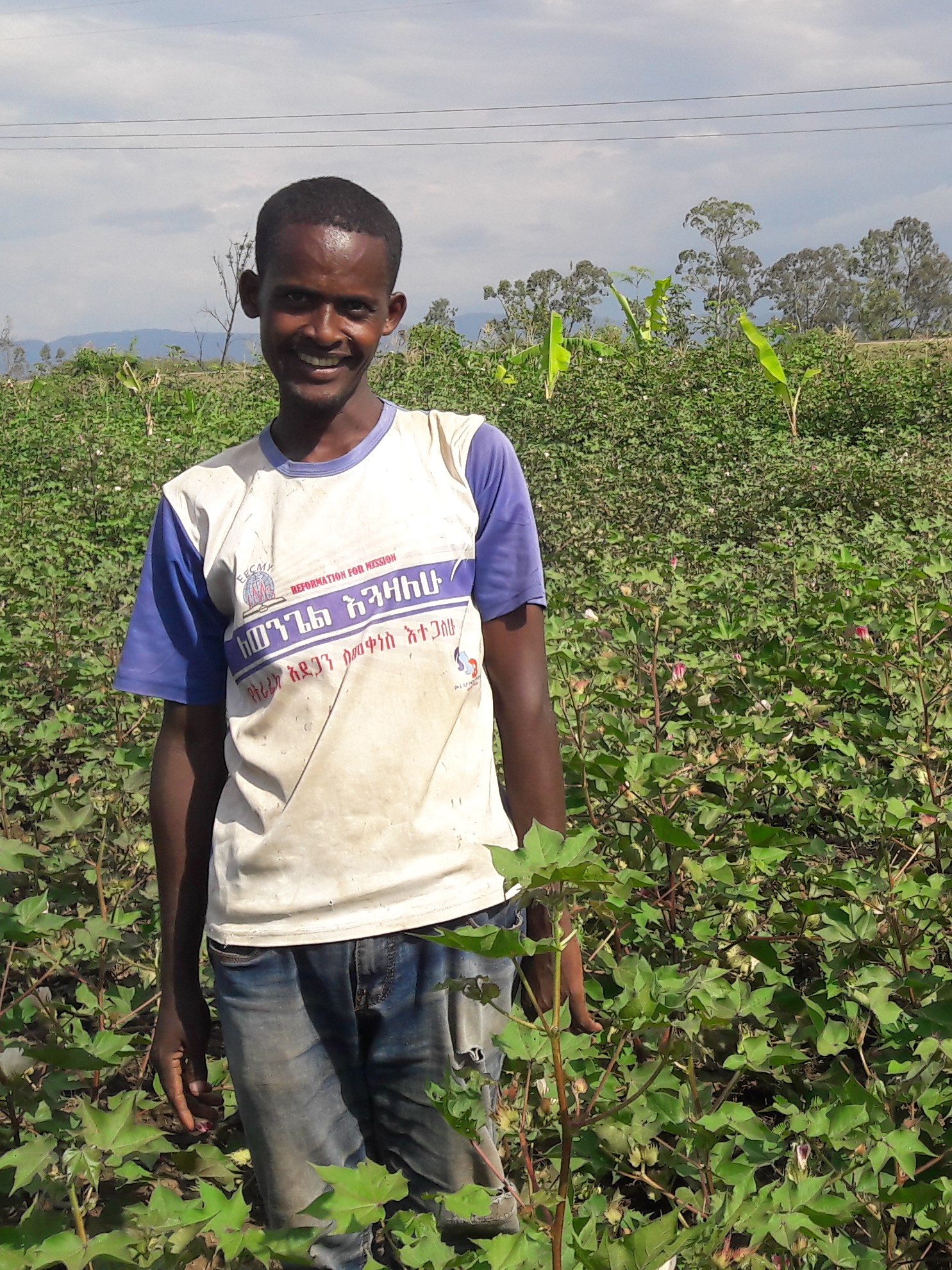
Moving forward
A recent International Cotton Advisory Committee (ICAC) report noted that the decline in price of seed-cotton is ‘likely to have a direct impact on the household incomes and food security of cotton producers in Africa.’ Looking ahead, ICAC suggest that the likelihood of food crisis will put greater value on food crops, particularly for smallholder farmers. Cotton farmers have asked PAN for training on vegetable crops to help mitigate disruption to the cotton trade. The Government of Ethiopia is also eager to protect local food supplies in anticipation of widespread food insecurity caused by the economic downturn.
The pesticide industry lobby is likely to respond to the crisis by pushing donors and governments to provide farmers with subsidies in the form of pesticides and other inputs. This is not the answer. Year after year, PAN’s trials and surveys show that, with effective training, farmers adopt low cost, sustainable approaches that substantially reduce their costs while achieving at least as good yields as local conventional farming practice. Given that the supplies of pesticides are also disrupted by the pandemic, the importance of low cost, local solutions is greater than ever.
Improving food security
The average Ethiopian eats just 29% WHO recommended quantity of vegetables, which is linked to rising incidence of non-communicable diseases. Even before the current crisis, there was a need to increase supplies of healthy, fresh vegetables to local communities. For the last two years, with the support of The JJ Charitable Trust and IDH, PAN has been testing sustainable, low-cost methods of vegetable production in the Ziway area in Ethiopia. Vegetable producers in this area use hazardous pesticides very intensively. In 2015, 65% of farmers in Ziway reported pesticide poisoning. Intensive practices put consumers at risk and are also linked to declines in fish stocks, soil quality and pollinators.
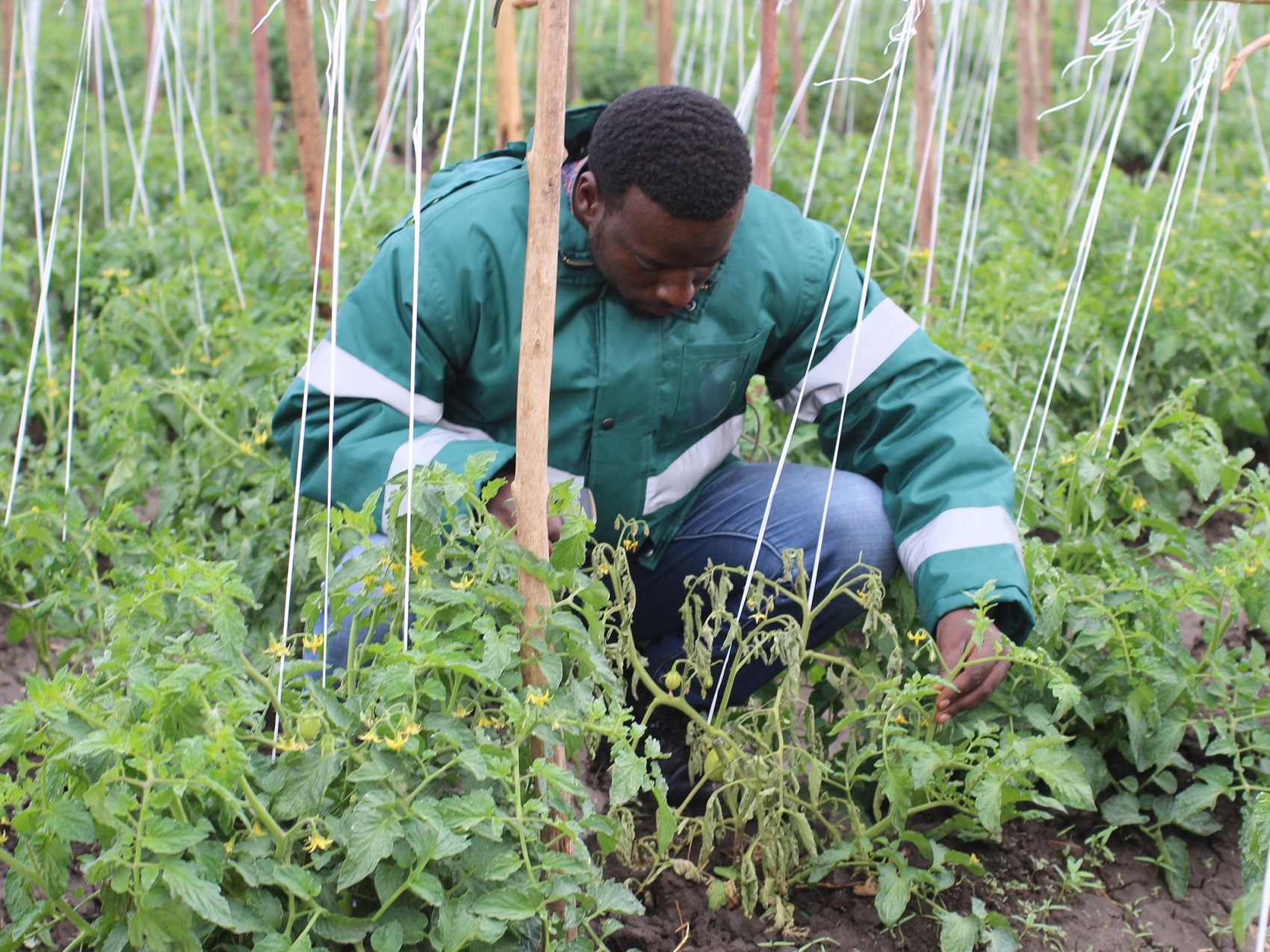
Ziway field team coordinator, Gemeda Kebero, assessing the balance between pest and predatory insects in tomato food spray trials. Credit: PAN Ethiopia
Sustainable farming practices address these problems. PAN’s vegetable field trials show that biological pest control plus good cultural practices reduce pesticide use by 60-80% and provide significant improvements in net income. Sharing sustainable methods of vegetable production with the cotton producers PAN works with will help these rural families to cope with the current crisis and emerge with skills and diverse farming systems that build resilience to future threats, whether from climate change, pandemics or other disasters. PAN is preparing to share locally tested methods of vegetable production with the 3000+ cotton farmers it supports in southern Ethiopia.
Most of the cotton farmers already grow vegetables, Kitchen gardens can be an important source of nutrition and income and they are more accessible to poorer families and women. Hard pressed rural families were already looking for ways to improve vegetable production and the COVID crisis has increased the urgency to do so. PAN is well placed to respond and, thanks to TRAID’s support, has experienced teams in place and is ready to take up the challenge.

